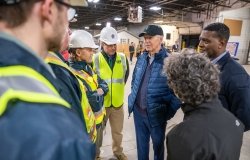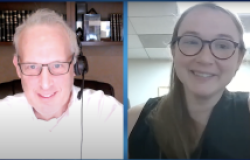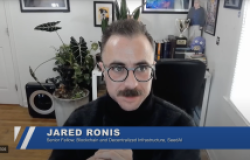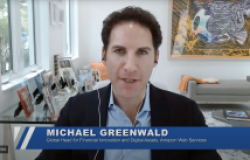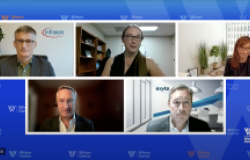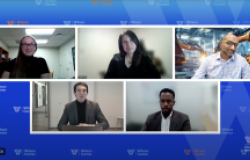Food Systems and National Security: The Science in Strategy
On Thursday, May 23rd, visionaries and practitioners from in and around government will gather at the Wilson Center in Washington, D.C. to address the needs of the country through the lens of food systems and food security. Sponsored by the US Army War College, the Wilson Center and the NASA Harvest Consortium.
Overview
On Thursday, May 23rd, visionaries and practitioners from in and around government will gather at the Wilson Center in Washington, D.C. to address the needs of the country through the lens of food systems and food security. Sponsored by the US Army War College, the Wilson Center and the NASA Harvest Consortium, this workshop, entitled “Food Systems and National Security: The Science in Strategy,” will build on Congressional and Executive Branch initiatives and studies that aim to detect, assess and respond to complex and dynamic food system risks to U.S. national security. Though food is central to this discussion, insights will stretch across all manner of complex problems affecting the homeland.
Keynote speeches, panels and breakout groups will focus on building partnerships within and beyond the US Federal Government to define, assess and resolve institutions fit for purpose to detect and evaluate a) events with potential large scale effects on the global food systems we depend on for export; and b) events that potentially affect domestic networks, which are highly complex. In both domains, domestic and international, discussions focus on the markets, practices, logistics and power arrangements capable of stabilizing and improving the reliability of food and resource networks for all humans in the face of a rapidly destabilizing global climate.
[[{"fid":"142711","view_mode":"default","fields":{"field_file_image_alt_text[und][0][value]":"Logos of the Wilson Center, US Army War College, and Harvest","field_file_image_title_text[und][0][value]":"","field_file_source[und][0][value]":"","field_file_caption[und][0][value]":""},"type":"media","attributes":{"alt":"Logos of the Wilson Center, US Army War College, and Harvest","style":"height: 113px; width: 300px;","class":"media-element file-default"}}]]
Please note portions of the event will not be available on livestream. Those that are available are noted below.
0830 – 0900
Registration and Coffee
0900 – 0915
Welcome & Introductions
Livestreamed
Welcome and Overview of the Workshop
Anne Bowser, Wilson Center
Goals and Origins of the Workshop
Molly Jahn, University of Wisconsin-Madison
Launch of the USAWC study commissioned by GEN Milley
COL Parker Frawley, US Army War College
0915 – 1030
Session 1
Livestreamed
Opening remarks and Introduction of LTG Cardon (Ret.)
The Honorable Sharon K. Burke, former Assistant Secretary of Defense
0915 – 0945
Session 1 Keynotes
Livestreamed
Security implications of the “global food system” relevant to the US Department of Defense
LTG Edward C. Cardon (Ret), Director, Office of Business Transformation, Office of the Under Secretary of the Army, former Commanding General of U.S. Army Cyber Command
Food systems as critical infrastructure: Vulnerabilities, Risk and Resilience
Dr. Igor Linkov, Senior Research Physical Scientist, Environmental Laboratory, U.S. Army Engineer Research and Development Center
0945 – 1030
Panel Perspectives
Livestreamed
MODERATOR: Professor Molly Jahn, University of Wisconsin
Dr. Rod Schoonover, US Department of State
Dr. Jean-Paul Rodrigue, Professor, Hofstra University
Mr. Phil Karsting, Policy Director, World Food Program USA, former Administrator, USDA Foreign Agriculture Service
Dr. Franziska Gaupp, International Institute for Applied Systems Analysis, Vienna, Austria
1030 – 1045
Break
1045 – 1200
Session 2
Livestreamed
The Devil You Don’t Know: Anticipating and Managing Risk in Complex Systems
1045 – 1105
Session 2 Keynote Address
Livestreamed
Threats, resources and politics: Implications of climate change for the U.S. Military
Professor Andrew Hill, US Army War College
1105–1200
Session 2 Panel Discussion
Livestreamed
Models for Risk: How other complex systems can inform DoD-relevant risks to the U.S. and global food system
MODERATOR: Professor Andrew Hill
Mr. Dennis Lockhart, former head, Atlanta Federal Reserve
Dr. Frank O'Sullivan, MIT Energy Initiative
Dr. Dustin Brisson, UPenn professor of biology and expert in infectious disease
Dave Wade, Director for Medical Preparedness in the Resilience Policy Directorate of the National Security Council
Dr. Ardath Grills, Associate Director for Innovation, Development, Evaluation, and Analytics (IDEA), Division of Global Migration and Quarantine, CDC
1200 – 1300
Lunch
Lunch Addresses: There is No Such Thing as a New Normal
Leo Holt, CEO, Holt Logistics Corp, “Supply chain vulnerabilities”
David Kaufman Vice President and Directory, Safety and Security, Center for Naval Analyses
“Supply chain resilience: Lessons from Hurricane Maria”
1310 – 1355
Session 3
Livestreamed
Building Domestic Resilience: Governance, Data Streams and New Institutions for US Domestic Food System Stability
“An exploration of opportunities to initiate or further develop cooperative military to military relationships to build partner capacity to avoid, minimize, or control global and regional food system shocks.”
MODERATOR: Bob Greenberg, G&H International
1310 - 1355
Session 3 Keynotes
Livestreamed
Improving the Culture of Preparedness and Preparing the Nation for Catastrophic Events
Eugene Shearer, FEMA Logistics Management Directorate Supply Chain Advisor
The National Critical Functions Approach to Developing a New Risk Index
Matt Masterson, Senior Cybersecurity Advisory, Department of Homeland Security Cybersecurity and Infrastructure Security Agency (CISA)
Innovation as a Force Multiplier to Improve Preparedness and Build Resilience
David Alexander, Senior Science Advisor, Resilience, Department of Homeland Security Science and Technology Directorate (DHS S&T)
Further discussion will occur in Breakout 3
1355 – 1615
Breakout Groups & Report-Back
1615–1650
Session 5
Fireside Chat and Audience Discussion
Innovations in Institutions, Technologies and Socio-cultural systems that could better prepare us for emergent risks and threats
MODERATOR: Bob Woodruff, ABC
Andrew Zolli Director of Global Impact, Planet
David Bray, Executive Director, People-Centered Internet
16150-1700
Closing Remarks
Hosted By

Science and Technology Innovation Program
The Science and Technology Innovation Program (STIP) serves as the bridge between technologists, policymakers, industry, and global stakeholders. Read more
Thank you for your interest in this event. Please send any feedback or questions to our Events staff.


